The Academy of Persian Language and Persianate Culture
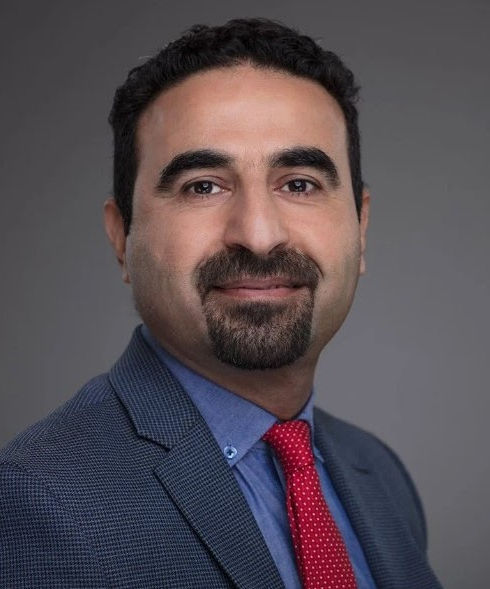
Seerwan Hariry
Assistant Professor of Arabic at the Edmund A. Walsh School of Foreign Service at Georgetown University in Qatar
"Peyman effortlessly navigates complex grammatical concepts and intricacies of the Persian language while keeping the lesson enjoyable and comprehensible. He can blend engaging content with interactive and practical methods. His teaching style not only facilitates a deeper understanding of Persian but also fosters a genuine enthusiasm for learning with me. I felt fortunate to be under the guidance of his skills, which made language acquisition enlightening and enjoyable. "

Wendy DeSouza,
Adjunct Professor of the Women’s and Gender Studies (WGS) Department, Sonoma State University, USA:
“Peyman is a complete Persian teacher. As an Advanced Persian speaker I have been able to improve my Persian from reading handwritten historical manuscripts to learning how to speak comfortably about current events. Peyman is extremely patient and vigilant about correcting my mistakes and my Iranian friends have noticed how I speak more fluently after we started out lessons”

Alexandra Hoffmann
Assistant Professor of Classical Persian Literature, University of British Columbia, Canada
"Peyman is a great help to anyone who does research on Persianate topics, classical or modern. He can make appear scans of sources, can read undecipherable scribbles, and is very knowledgeable about various libraries in Iran. I enjoyed reading classical texts with him and discussing its content in Persian – it’s great practice for those speaking skills!."

Bill Figueroa
Assistant Professor of History and International Relations, University of Groningen, Netherlands:
"Peyman makes using Persian far more accessible, especially for non-native researchers without easy access to the cultural, literary, and social contexts that are necessary to understand most historical texts. Not only does he do an excellent job of teaching these underlying contexts through his extensive knowledge of Persian language, literature, and society, but he also brings a deep understanding of the Iranian academic landscape and the digital archival sources that are available. I can especially recommend Peyman to those who wish to work manuscripts and texts with difficult-to-decipher handwriting, calligraphy, or problems in the printing. He does an excellent job deciphering these texts and explaining the particular quirks and stylistic elements of each, so that you will be reading quickly and smoothly in no time."

Margaret Shortle,
Curator, Museum of Islamic Art, Berlin, Germany
"I highly recommend Peyman Eshaghi as a Persian language instructor especially for readers of classical literature. He employs a method of learning that mirrors reading acquisition for children. His approach reinforces a foundational vocabulary, word combinations and syntactic conventions commonly employed in classical literature. His approach is well suited to my request to recover and reinforce vocabulary for my continued interest in classical Persian poetry. I hope to continue to work with Peyman in the future when shared interests and schedules permit."

Aun Hasan Ali
Associate Professor of Religious Studies, University of Colorado Boulder, USA
“Peyman is an excellent teacher. When I started working with him, I had very specific goals in mind. Peyman designed a course that perfectly matched my needs. In the short time we spent together, I made significant progress toward my goals. I also benefitted from Peyman’s vast knowledge of Islamic law and Islamic history. I would recommend his classes to anyone, at any level of Persian.”

Laetitia Nanquette
Senior Lecturer in the School of the Arts and Media at the University of New South Wales, Sydney, Australia:
“I have been taking lessons with Peyman for a term. Together we read texts useful to my current research. Peyman has a deep knowledge of Persian culture and literature. He will not only explain grammar by explaining expressions, and vocabulary by pointing out where the words come from, but also cultural phenomena. It makes for very interesting Persian lessons that keep the student engaged, while progressing at a good pace.”

Rowena Abdul Razak
Assistant Professor of Middle Eastern Studies, Queen Mary Unviersiry of London, UK:
"Peyman is a fantastic Persian teacher. He is very considerate to the needs of his students and adjusts his teaching accordingly. He is kind, patient and accommodating, as well as a pleasure to learn from. He choose material that is appropriate and interesting, while making you understand the language from a logical point of view."

Ray Lahiri
Assistant Professors of Classics, University of Washington, USA:
"Peyman is an excellent (and patient!) pedagogue with a rich treasurehouse of memorized verses apt for seemingly every occasion. With Peyman, you don’t just learn the language, you learn to appreciate it: every lesson encompasses the nuanced explication of morphology and word usage alongside social, historical, and sociological insights into the contexts of Persian literature and intellectual history."

Lillian McCabe,
PhD candidate of Islamic Studies, Yale University, USA:
“With so many Persian language sources available online, it can be hard to know where to start! Peyman is an excellent guide to navigating these digital tools and using them to deepen and improve your research. From accessing Persian-language scholarship and digitized Persian manuscripts to being able to confidently read and use these sources, Peyman’s courses prepare you to take your research to the next level!”

Mehreen Zahra Jiwan
PhD Candidate of Religious Studies, University of Columbia, USA:
“Learning with Peyman is truly an unmatched experience. He adapts his lessons to the research interests of his students whilst effectively providing the language skills needed to understand Persian texts. Peyman does not simply teach Farsi, but also provides profound insights into the worlds in which the language operates. His knowledge of Persian literary and cultural exchange and his ability to explain the lexical and grammatical features of the language make his lessons very beneficial. He also guides students through important Persian research databases allowing us to gain access to sources that are somewhat untapped by the western academe. Peyman is a kind, flexible, and patient teacher who is invested in the success of each one of his students. I highly recommend working with him.”

Aliya Iqbal-Naqvi
PhD Candidate of Near Eastern Languages and Civilizations, Harvard University, USA:
"Peyman is an outstanding Persian Language and Literature instructor, encompassing the usages of a living language and a millennia-long literary tradition. His pedagogical approach is both distinctive and highly effective, bolstered by a profound knowledge of Persian poetry, history and culture. What sets Peyman apart is his unique ability to cater to the specific needs of professional scholars who require a deep and complex comprehension of literary Persian across centuries— a rare attribute among Persian language instructors. I feel exceptionally fortunate to have had the opportunity to study with Peyman."

Sibgha Javaid
PhD Candidate of Religious Studies, Princeton Harvard University, USA:
"Learning how to read Persian texts this summer with Peyman has been an invaluable experience. As a teacher, Peyman is not only insightful, patient, and deeply knowledgeable but also well-versed in both the intricacies of Persian literature and the art of researching classical Persian texts. In every session, Peyman deconstructs both the grammatical and stylistic aspects of the texts that deserve attention, and guides me to ask key questions about the text to reveal its layers of meaning. While many instructors can help untangle texts on a surface level, very few can model the research process like Peyman. His approach to reading and reflecting on classical texts is illuminating and has allowed me to read classical texts with courage and excitement. Rather than simply interpreting the words on the page, Peyman invites his students into the world of these texts, making us acutely aware of the cultural and historical forces that shaped them. His meticulous attention to detail and his remarkable ability to quote Persian poetry to illustrate the nuances of languages enriches his teaching, and brings the literary tradition to life. After just one summer of lessons with Peyman, my ability to read classical Persian texts has significantly improved, and I feel better prepared to work on my research. I look forward to continuing to learn from Peyman, and wholeheartedly recommend him to all students interested in learning how to read and research Persian texts, or anyone seeking to gain a better appreciation of the Persian language!"

Sebastian J. Rose,
PhD in History, International Relations, and Politics at the University of Greenwich, UK:
"Peyman’s Persian classes were unique because of his teaching skill and insightful historical knowledge of language, culture and history. His ability to tailor classes to my level and his rigorous teaching propelled me towards greater fluency and confidence. The combination of patience, dedication, ability to breakdown and explain linguistic and cultural and historical complexities made Peyman an excellent Persian teacher."

Zahra Shah
Lecturer in Early Modern History, Department of History, University of Bristol, UK
"I found Peyman to be an extremely patient and openminded teacher. He adapted his methods to my ways of reading and understanding, and is always open to different opinions and interpretations of a text. He is very encouraging and explains concepts with clarity. Peyman is also very consistent and organised, which motivated me to have more discipline in following up with homework and reading before our next lesson. I highly recommend him to anyone struggling with complicated documents and texts, as well as complete beginners!"
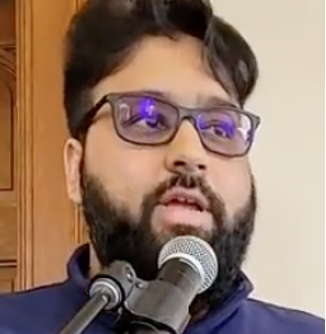
Usman Khan
PhD Candidate of Religious Studies, Princeton University, USA:
"I have the privilege of learning Persian from an exceptional teacher, Peyman Eshagi. Peyman is truly a great instructor who possesses extensive knowledge of the Persian language. His expertise is not limited to the language alone; he also has a deep grasp of the traditional Persian literary tradition and its intersection with the Western academic world. Peyman’s pedagogy is outstanding. He has a unique ability to explain complex linguistic concepts in a simple and understandable way. His patience and dedication to students are evident in every class, creating a positive and encouraging learning environment. What sets Peyman apart is his passion for Persian literature. He brings the rich tapestry of Persian literary tradition to life in his classes, making it accessible and engaging for me. His insights into the connections between traditional Persian literature and the Western academy are invaluable, providing me with a holistic understanding of the subject. He has memorized hundreds of Persian couplets and is able to draw on them at a moment notice. For MA and PhD students in the academy trying to learn Persian, I highly recommend Peyman as a Persian teacher. If you are looking for a teacher who is not only knowledgeable but also passionate about Persian language and culture, Peyman is the perfect choice. Thank you for your dedication to teaching and for sharing your expertise with your students!"

Ali Hammoud,
PhD Candidate at Western Sydney University, Australia:
"Studying Persian with Peyman has been a truly delightful experience. His knowledge of the subtleties of Persian have helped me unravel meanings and connotations not easily accessible from the text, and his breadth of knowledge encompasses every field of study; he is equally at home discussing poetry, Sufism, jurisprudence, and other fields of Islamic intellectual history in multiple languages. Ustad Peyman’s lessons have been particularly beneficial in helping me decipher Persian and Arabic manuscripts. In our first lesson I laboured for an hour to read a single page of a 17th century manuscript. Five lessons later I was able to comfortably read — and simultaneously translate — 10 manuscript pages per lesson. This would not have been possible without Ustad Peyman’s meticulous instructions, valuable feedback, and welcoming demeanour. There are few courses available that teach Persian at an advanced level, and even fewer that teach palaeography. None, however, are at the quality of lessons that Ustad Peyman offers. I would strongly recommend studying with Ustad Peyman to all those looking to take their Persian to the next level."

Sukaina Husain,
PhD of Art history graduated from the University of Edinburgh, United Kingdom:
"Over the last few months, my lessons with Peyman sahib have given me a confidence with the Persian language with a speed and ease that I never anticipated when I started the Qand-e Parsi course with him this summer. His unique approach to the study of the Persian language really works and, I would highly recommend him to any graduate student, researcher, or professional academic keen to gain skills in the reading, analysis, and translation of Persian texts and inscriptions. Combined with Peyman sahib's wealth of knowledge about Persian literature and culture -- pre-modern and modern, his expertise in the religious, intellectual, and visual culture of the Persian-speaking world makes Qand-e Parsi one of the best immersive introductions to Persian language and culture available to scholars at present. I'm glad I made the first step to reach out to him all those months ago as it was one of the best decisions that I have made this year."

Shamim Hossain,
PhD student in Islamic studies, University of North Carolina, USA:
"Peyman is an excellent Persian instructor with a vast amount of knowledge that can be tailored to any need you may have. In my experience, I was able to attain much needed instruction from a novice skill level to address my specific needs in terms of reading Persian. I would highly recommend using Peyman for any of your Persian language needs, whether they be recreational, professional, or academic."

Aram Yardumian
Associate Professor of Anthropology, Bryn Athyn College, USA:
"I met twice weekly with Peyman for basic Persian. As with all good language instructors, I found him patient and able to keep the momentum going. You will find him invested in your success and it is easy to recommend him.."

Marya Hannun,
post-doc researcher, University of Exeter, United Kingdom:
"Peyman is a wonderful Persian tutor for academics and non-academics alike. He is capable of instructing students through the basics of the language or working with scholars on translating complex texts. His knowledge of the language, incorporation of historical material and engaging demeanor make sessions enjoyable and enriching."
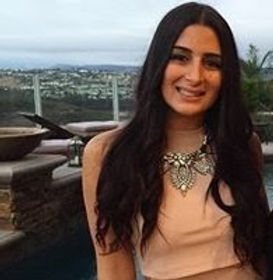
Rojeen Harsini,
PhD Candidate of American Studies, University of Southern California, USA:
"Learning Farsi with Peyman Eshaghi has been an absolute joy. I first began lessons with him during Ibn Haldun’s summer language program, where he taught me and a handful of students beginner Persian. By the end of the first week, he had taught us how to read, write, and recite the alphabet, and by the second week we learned how to formulate basic sentence structures. His teaching style is direct, generous, and historical— he not only is invested in teaching his students the Persian language, but he finds value in teaching us beyond the language, specifically how words and phrases have symbolic, cultural, and historical meaning within Iranian history. I have learned equally as much about Iran as I have the Persian language as one of Eshaghi’s students. I am beyond grateful to be one of his students and under his expertise, and I look forward to continuing intermediate Persian with him!"

Cindy Dehghanian,
Spanish Teacher, USA:
“I really enjoyed my online classes with Professor Mohammad; I was able to understand grammar and daily expressions, but I also learned a little more about Iranian culture. The classes have been very interesting, and I hope to continue with the learning process.”

Hamid Kolahdouz-Isfahani
PhD Candidate of History, University of California, Davis, USA:
"As a California-born Iranian and Safavi historian working with Peyman has been a God-send catalyzing the development of my academic career. Before working with Peyman, understanding and translating baroque 17th century Safavi texts was a daunting task that required hours to translate a single page. Despite spending years learning farsi formally since high school, I found that very little of what I learned, including at the undergraduate university level, including two years of Arabic, was applicable to the ornamented writing style and elegant vocabulary popular in the Persianate world from the start of the 16th century onwards. Even my uncle who is well educated in Iran and an avid reader of medieval Farsi poetry could not understand these texts. To make matters worse for my predicament, early modern Persianate historiography has become increasingly self-conscious of the importance that the historian using these texts is as well squinted with Safavi era adab (bank of literary and religious classics and allusions) as the authors and their immediate reading audience at Safavi court and in elite society in order to understand the meaning of the literary devices used throughout the early modern texts. In just two months working alongside Peyman has sped up my reading and translating rate to 3 pages an hour. My vocabulary has vastly expanded as has my ability to understand the convoluted sentence structure and grammar used in the texts. Critically, through Peyman’s insight and knowledge my grasp of Safavi adab has rapidly tightened. Metaphorical phrases that would make little sense to contemporary Iranian speakers such as “pulling the ring of servitude,” which is an allusion to the use of earrings as a means of marking slaves in Safavi society, were readily explained by Peyman as he reviewed my translation. I would highly recommend taking the course to any Persianate historians looking to improve their reading comprehension as well as to any non-specialists interested in understanding classical early modern Farsi poetry and literature from the Balkans to the Bengal. Working with Peyman is likely even useful for those looking to better comprehend classical late medieval and early modern works in other languages of the Persianate world, such as Urdu, Hindi, Dekkani, Pashto, Ottoman Turkish, and Chagatai to name a few, in order to understand better understand the Farsi literary world that the authors of those works simultaneously engaged with."
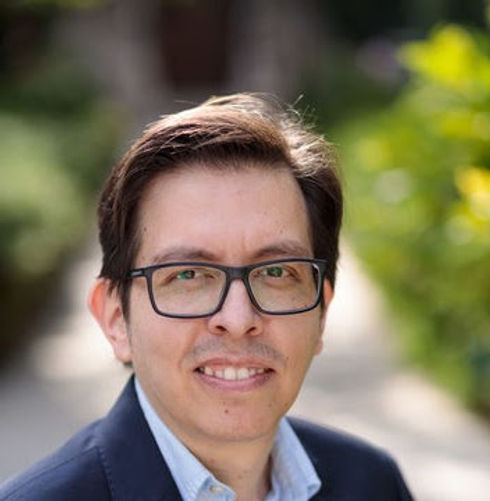
Eduardo Acosta.
Mellon Postdoctoral Fellow. Department of History, Stanford University.
“Learning Persian with Mohammad Naraghi has been a truly changing experience. As an instructor, Mohammad has been very flexible with both our shared schedule and, more importantly, my needs for learning Persian. Since I wanted to learn Persian for research purposes, colloquial Persian and production of the language was not in my priorities. Mohammad designed and offered a course heavy on grammar, reading and building vocabulary. Having a background in learning other classical languages, this worked for me perfectly. On top of that, Mohammad also made sure to explain many forms that came from Arabic and others that were native to Persian. Again, this resonated well for both my purposes and my background learning classical languages through a grammatical/philological approach. I highly recommend taking class with Mohammad.”

Brandon Waldau,
PhD student of history, Columbia University, USA:
“I had a great experience working with Mohammad Naraghi this past summer to learn Persian. Myone-on-one sessions with Mohammad were informative, engaging, and tailored to my academic and professional goals, and were the necessary foundation for learning Persian before starting my PhD at Columbia University. Having little experience with Persian before starting at Ghand-e Parsi, Mohammad was eager to gear our lessons to work off the foundation that I did know. By reflecting our lessons against classical Arabic, the primary language of my research thus far, I was able to make connections between Arabic and Persian that quickly allowed me to interpret grammar, linguistic patterns, and historical context. I highly recommend language instruction via Ghand-e Parsi and Mohammad Naraghi to any academic seeking to hone their Persian skills at any level.”

Ch. L.,
Phd Student of Humanities,
Indiana University Bloomington, USA
“Since this summer [2024], I have been working with Peyman to read and translate a nineteenth-century Persian publication on the ancient monuments in the province of Fars. This publication and other nineteenth-century texts I am researching for my dissertation are written in an ornamented literary style that often draw on difficult vocabulary that is no longer current in contemporary Persian speech. As the Persian coursework at my university was not focused on cultivating an academic and historic knowledge of the Persian language, it was a struggle for me to read these texts. Working weekly with Peyman, I have been able to translate many more relevant sections for analysis in my dissertation. Peyman is the director of Ghand-e Parsi, an online Persian language school geared towards academic researchers. Peyman came highly recommended by other PhD students and even professors who work on difficult Persian texts. As Peyman himself specializes in the history of Qajar Iran (1789 – 1925), I have doubly benefited from his familiarity with the general terrain of knowledge production in this era.”

G. Ufuk Erol,
Research Associate, The Leibniz Institute of European History (IEG), Mainz, Germany
“Studying Persian with Ostad Peyman has been a rewarding journey. His extensive knowledge spans a wide range of disciplines—whether it's poetry, Sufism, Islamic law, or other areas of Islamic intellectual tradition—and he navigates them all with ease in multiple languages. His guidance has been especially valuable in improving my academic Persian. Not only did he help me improve my language skills, but also he provided various academic resources about the different fields of Iranian studies. I recommend studying with him to anyone aiming to elevate their Persian proficiency.”

Nicole Oveisi
PhD candidate in American Studies at the University of Southern California, USA
“I have been fortunate enough to be a student of Ostad Peyman Eshaghi. Before starting his class, I spoke Farsi at an elementary level, with no ability to read or write. After just a few days with Professor Eshaghi, I learned the alphabet and was able to read and write elementary-level texts; now after a year together, I am more confident in my ability to read, write, and speak at an intermediate level. Professor Eshaghi cares deeply about the Farsi language, its cultural and historical roots, and its linguistic evolution. I don't know a Farsi language professor more knowledgeable and dedicated than him. Thank you Ostad!”

Stefana Luca,
BA Student of Political Sciences, The National University of General San Martín, Argentina.
“Mr Peyman's slow and steady approach to teaching persian, coupled with his friendly and approachable personality, creates an ideal atmosphere wherein the student can gradually become familiarized and comfortable with the new language. His classes are a great way for people with zero knowledge about the Persian language to learn with (and from) a knowledgeable native speaker.”

Neha Tiwari,
Phd Student of South Asia Studies, University of Pennsylvania, USA
“I have been taking Persian classes with Peyman for the past seven months. He has a deep knowledge of Persian language, both in terms of its literature—from the classical to the modern period—and its grammar and lexicon. I have greatly appreciated his guidance and insights on the texts we have read together, and I am grateful for the opportunity to work closely on materials relevant to my research interests.”
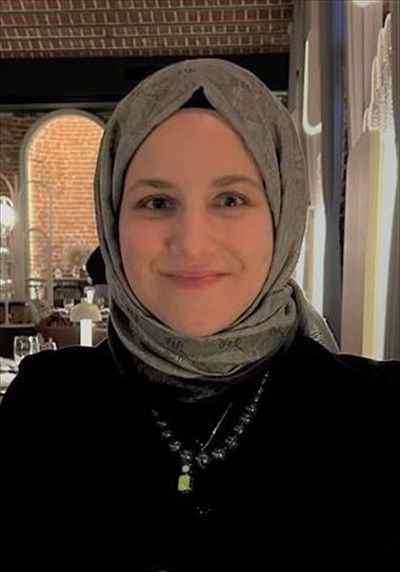
Zeynep Yıldırım,
Phd Student at EHESS: École des hautes études en sciences sociales, Paris, France
“Working with Peyman was an exceptionally enjoyable and enlightening experience. The greatest strength of our lessons and primary source readings was not only his command of the Persian language itself, but also his deep sensitivity to how expressions shift across centuries and to the nuances that emerge from the breadth of the Persianate cultural world — insights he consistently brought into focus with thoughtful guidance. Equally important, his patience, flexibility, understanding, and steady willingness to help made a genuine difference during my doctoral dissertation process, easing the pressure in a way I will always appreciate.”

Di Wang,
Ph.D. Candidate; Graduate Research Associate, Center for Medieval and Renaissance Studies, The Ohio State University, USA
“I have learned about many important yet lesser-known digital resources for Persianate Studies available through libraries, research centers, databases, and more portals through the Digital Humanities and Persianate Studies Bootcamp taught by Peyman. Peyman is very knowledgeable and supportive, and always encourages us to ask questions.”

Jessica Mccrindle,
Ma Student of Psychology, The Australian National University, Australia
“I’ve been learning Persian with Peyman for nearly a year, and he’s been an excellent tutor who is professional, flexible, and deeply knowledgeable. He is an engaging teacher (I find his insights about etymology particularly fascinating) and is happy to tailor our lessons to my interests and goals. I’ve seen great improvements in my Persian language skills since working with him across literary, modern, and informal registers. I highly recommend him to intermediate–advanced Persian learners.”

Samantha Stringer
Ph.D. Candidate & Teaching Assistant
Department of Literature
University of California, Santa Cruz, USA
“I am extremely grateful to have been introduced to Peyman after discovering that my university did not offer the advanced Persian levels necessary for my graduate research. I started my lessons with Peyman, still fairly new to Persian, and over the last few months he has helped me build a solid foundation in the language and the confidence to tackle primary sources for my dissertation. Peyman’s patience has relieved the anxiety of making mistakes in a new language, and his passion for the language has kept me genuinely excited to log onto our lessons multiple times a week. Having completed a PhD himself, Peyman has also been extremely helpful in acquainting me with relevant Persian-language scholarship, enabling me to bridge the gap between Persian and English-language discussions on my dissertation topic. It is no exaggeration to say that my PhD path would not be what it is now without Peyman!”